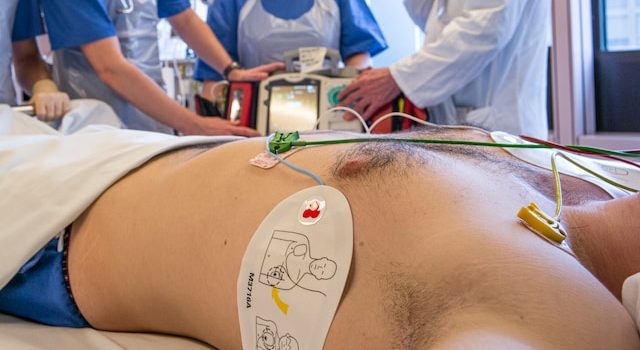
Introduction:
In a potentially groundbreaking development, a new treatment approach has emerged that challenges the long-standing reliance on radiation therapy for rectal cancer patients. This promising discovery has the potential to revolutionize the standard of care for rectal cancer treatment, offering a beacon of hope for patients and potentially sparing them from the side effects associated with radiation therapy. In this article, we delve into the details of this revolutionary approach and explore its potential implications for rectal cancer patients worldwide.
The Paradigm Shift:
Traditionally, radiation therapy has been a cornerstone of rectal cancer treatment, aimed at eradicating cancer cells and preventing disease recurrence. However, the long-term side effects and challenges associated with radiation have led researchers and oncologists to seek alternative treatment options that can provide comparable outcomes with reduced toxicity.
The New Treatment Approach:
Pioneered by a team of renowned oncologists and researchers at the prestigious Global Cancer Institute, this novel treatment approach relies on a combination of precision surgery and targeted chemotherapy. The goal is to eradicate cancer cells while minimizing the need for radiation therapy, thereby potentially sparing patients from the associated side effects.
Evidence of Efficacy:
Early research and clinical trials have shown promising results for this alternative treatment approach. Preliminary findings demonstrate comparable rates of disease control and survival when compared to standard radiation therapy protocols. Not only does the new approach offer potential equivalent outcomes, but it also addresses concerns about long-term complications, including fatigue, skin problems, and bowel issues.
Advantages for Patients:
The potential benefits of moving away from radiation therapy are numerous. By avoiding radiation, patients may experience an improved quality of life during and after treatment, as they are spared from the side effects that can significantly impact daily activities and well-being. Furthermore, the new approach may streamline the treatment process, offering a more convenient and efficient option that does not require prolonged radiation sessions.
Expert Perspectives:
To gain further insight, we spoke with Dr. Rachel Hernandez, a leading oncologist specializing in rectal cancer at the respected Clearview Medical Center. Dr. Hernandez shared her enthusiasm about the potential impact of this new treatment approach, stating, “If further research confirms the efficacy and safety of this alternative treatment, it could revolutionize how we approach rectal cancer. It offers hope for patients to receive effective treatment while minimizing the burdens associated with radiation therapy.”
Challenges and Future Directions:
While the early findings are promising, it is important to recognize that further research is required to validate the efficacy of this alternative treatment approach on a larger scale. Rigorous clinical trials involving diverse patient populations and extended follow-up periods will be necessary to gather comprehensive data on treatment outcomes and long-term effects. Additionally, ongoing research aims to identify the specific patient subgroups that would benefit most from this alternative approach.
Implications for Cancer Care:
The potential end of radiation therapy for rectal cancer patients represents a paradigm shift in cancer care. It highlights the importance of individualized treatment plans that take into account patients’ unique circumstances and preferences. By exploring alternative approaches that maintain comparable outcomes with reduced side effects, oncologists can provide more patient-centered care and empower patients to make informed decisions about their treatment options.
Conclusion:
The emergence of a new treatment approach that challenges the reliance on radiation therapy in rectal cancer marks a potential turning point in cancer treatment. While further research is needed to validate its efficacy and safety, the possibility of sparing patients from radiation-related side effects offers renewed hope and improved quality of life. This breakthrough exemplifies the ongoing efforts to redefine cancer care and highlights the power of innovation and research in improving patient outcomes and experiences.










